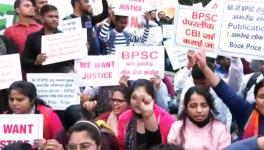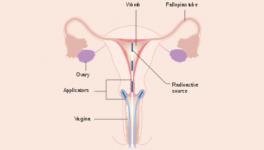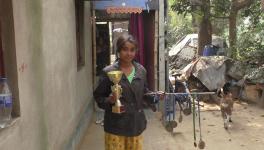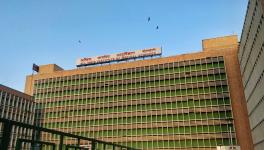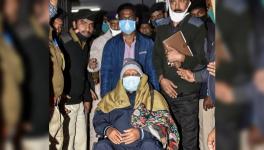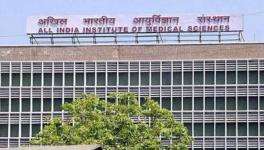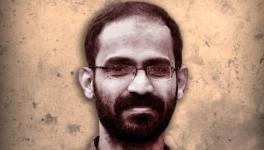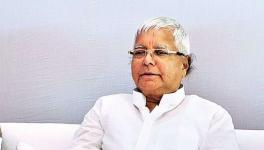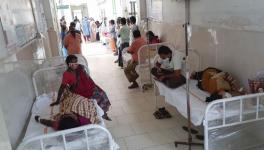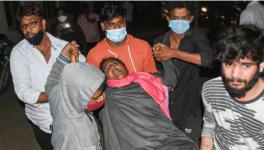Treatment Scarce for Cancer Patients after 8 Months of Lockdown in Delhi
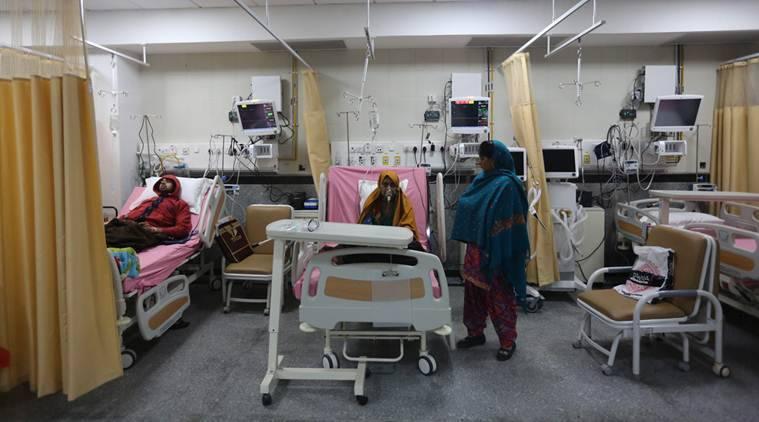
Representational image. | Image Courtesy: Indian Express
New Delhi: Lakhs of patients are waiting for resumption of normal operations at National Cancer Institute, All India Institute of Medical Sciences and other speciality hospitals across the national capital which were converted into coronavirus facilities post-lockdown.
“What do you do when you know your younger brother, who is also the sole breadwinner of the family, is in last stage of cancer and still you are made to run from pillar to post to save his life? You Run,” says an agonised Kalpana Das, a resident of Surya Nagar in Ghaziabad. Das is seeking treatment for her younger brother Sumanta Das, who is battling chest cancer, and shuttles her days between private and government hospitals in the hope of somehow getting her brother treated. She said the disease was detected when Sumanta Das started complaining of headache and excruciating pain in different parts of the body amid “misadventures” by doctors. “The doctors treated him like a guinea pig and we lost precious time,” she told Newsclick.
Kalpana Das says her ordeal started when doctors at AIIMS in New Delhi suggested that she book an online appointment and come accordingly. A visit to the government website for booking an appointment showed that no appointment was available before January 1. “The doctors had suggested that any delay would cost his life. If I go by the schedule, the treatment would get delayed by one-and-a-half months.”
Much like Das, Humeira, who hails from Agra in the Uttar Pradesh, is staring at uncertainty. Her father is battling blood cancer and her loaned money is exhausted. The closure of government facilities has forced her to approach privately owned Action Balaji Cancer Hospital where doctors suggest that each round of chemotherapy would cost her between Rs 25,000 to Rs 30,000.
Humeira told NewsClick: ”I looked for an appointment in AIIMS but no dates are available before January 1. We will lose significant time if I go by the process. I checked other options like Rajiv Gandhi Super Speciality Hospital run by the Delhi government but the doctors suggested that it was far more expensive than the current option.”
A similar state of affairs prevails at Delhi Government-run Delhi State Cancer Institutes.
Explaining the crisis and its implications on cancer patients, Dr Abhishek Shankar, Assistant Professor in Department of Radiation Oncology at Lady Hardinge Medical College and SSK Hospital, told NewsClick that resource allocation in terms of cancer care has to be wise and prudent
”It is correct that the hospitals are now working with a compromised strength of healthcare workers and capacity. They are working in teams so that if any of the staff gets infected, other could be saved from the contagion. Doctors who were performing 12 surgeries in a day (pre-COVID) are hardly conducting two surgeries now,” he said.
Dr Shankar said the process had also become sluggish because patients now need to furnish their corona test results every time they go for chemotherapy sessions. “If you look at the figures, each year we add 15 lakh new patients and given eight months of closure of operations, we have denied treatment and cancer care to almost 10 lakh patients now. Majority of these patients live in rural areas whereas 90% cancer hospitals are based in urban areas. So, the patients are facing double trouble. First, they need to travel with less transport now and then access the treatment,” he added.
Dr Shankar said the government’s knee-jerk reaction had “amplified” the crisis. “I think the government did not understand that cancer care was far more important than tackling coronavirus. In coronavirus infection, only 3% patients need emergency care, whereas cancer demands 100% emergency care and any delay can lead to fewer chances of survival,” he said.
For the time being, things need to be dealt tactfully with cancer care being a priority, Dr Shankar said.
“Open the hospitals. It must be remembered that chronic diseases like cancer compel families and households to spend significantly out of pocket which, in turn, pushes them into poverty. So, it’s a bigger crisis. The pandemic gave us the right lesson to strengthen our health infrastructure or else the cancer care will remain in limbo,” he added.
Shankar was referring to a study conducted by the Public Health Foundation of India which suggested around 55 million Indians were slipping into poverty due to significant ‘out of pocket’ expenditure and the expenditure on cancer and cardiovascular diseases was becoming the prime component.
NewsClick tried reaching G K Rath, Head, National Cancer Institute, for his comments about the reopening of the centre but he remained unavailable.
Get the latest reports & analysis with people's perspective on Protests, movements & deep analytical videos, discussions of the current affairs in your Telegram app. Subscribe to NewsClick's Telegram channel & get Real-Time updates on stories, as they get published on our website.









